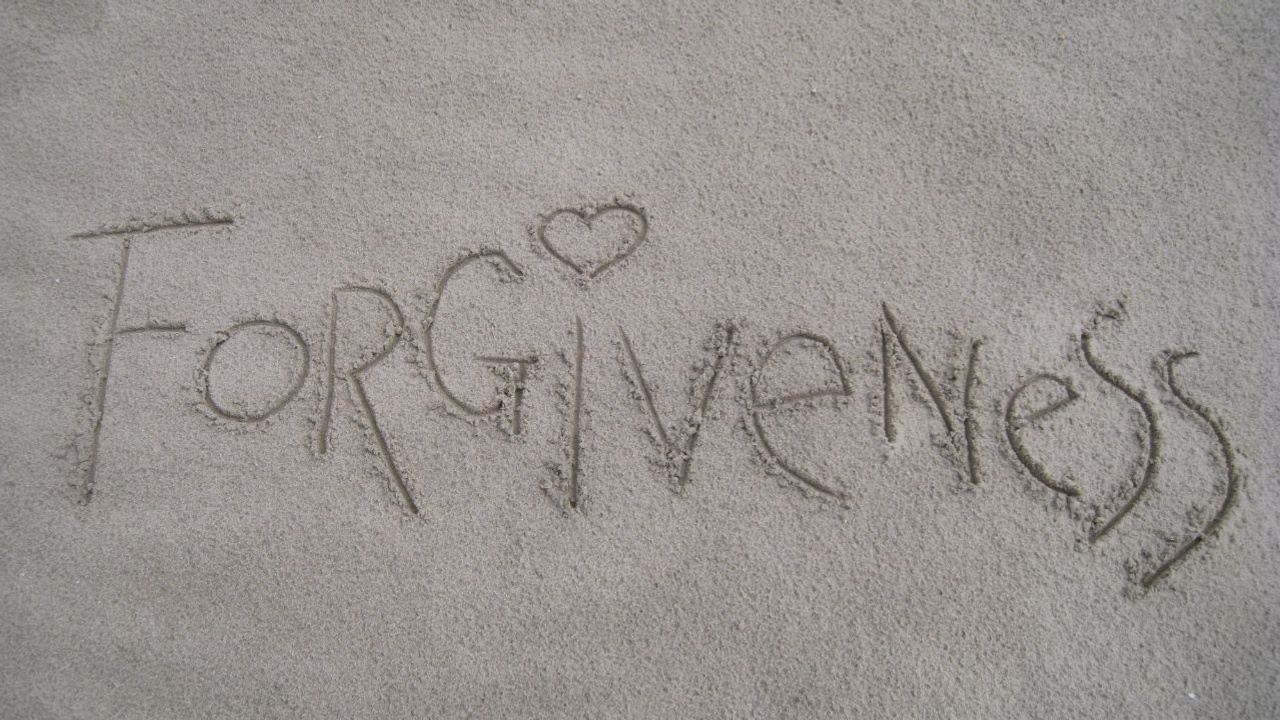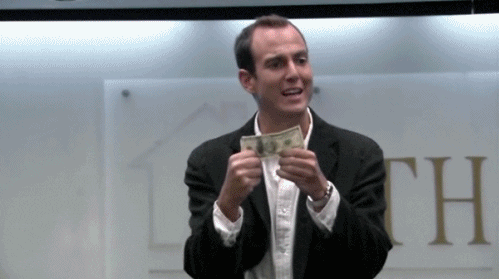How To Forgive Yourself

This is one of the biggest hurdles I see people struggle with when trying to stay sober- it’s the guilt and shame of choices you’ve made in the past, and figuring out how to forgive yourself so you can move forward.
It feels like a 5000 pound blanket weighing you down, making it feel impossible to move, and impossible to heal.
💣Truth Bomb: You can not move forward in your life if you spend all of your time looking back.
But if your desire is to move forward and create a new life, you have to look forward and focus on what that new life, and new version of you, is going to look like.
Then you create that.

When I say create it, I mean, if you see yourself as the green smoothie drinking yoga mom – take the steps that get you closer to being that person.
Start making some smoothies and go to yoga! It doesn't mean the transition happens overnight and you nail it from the first try - it means you decide that's the lifestyle you want, so you spend some time looking up some smoothie recipes and go to the store and get the ingredients.
Then, you figure out where you want to go to yoga and if you want someone to go with you, you find some classes, and you put it on your schedule.
Move forward and put your energy into moving forward, creating the life you want, instead of expending your energy looking back on what you regret and wish was different.
Easier said than done, right?
Check out these tips I found on Healthline and some helpful tips to make them actionable.
Tips for Forgiving Yourself
1. Focus on your emotions
One of the first steps in learning how to forgive yourself is to focus on your emotions. Before you can move forward, you need to
2. Acknowledge the mistake out loud
If you make a mistake and continue to struggle with letting it go, acknowledge out loud what you learned from the mistake, says Jordan Pickell, MCP, RCC.
When you give a voice to the thoughts in your head and the emotions in your heart, you may free yourself from some of the burdens. You also imprint in your mind what you learned from your actions and consequences.
3. Think of each mistake as a learning experience
Englander says to think of each “mistake” as a learning experience that holds the key to moving forward faster and more consistently in the future.
Reminding ourselves that we did the best we could with the tools and knowledge we had at the time, will help us forgive ourselves and move forward.
4. Give yourself permission to put this process on hold
If you make a mistake but have a hard time putting it out of your mind, Pickell says to visualize your thoughts and feelings about the mistake going into a container, such as a mason jar or box.
Then, tell yourself you are putting this aside for now and will return to it if and when it will benefit you.
5. Have a conversation with your inner critic
Journaling can help you understand your inner critic and develop self-compassion. Pickell says one thing you can do is write out a “conversation” between you and your inner critic. This can help you identify thought patterns that are sabotaging your ability to forgive yourself.
You can also use journaling time to make a list of the qualities you like about yourself, including your strengths and skills. This can help boost your self-confidence when you’re feeling down about a mistake you made.
6. Notice when you are being self-critical
We are our own worst critics, right? That’s why Pickell says one important action tip is to notice when that harsh voice comes in and then write it down. You might be surprised by what your inner critic actually says to you.
7. Quiet the negative messages of your inner critic
Sometimes it can be difficult to recognize the thoughts that are getting in the way of forgiveness. If you’re struggling to sort out your inner critic, Pickell suggests this exercise:
- On one side of a piece of paper, write down what
your inner critic says (which tends to be critical and irrational). - On the other side of the paper, write a
self-compassionate and rational response for each thing you wrote on the other
side of the paper.
8. Get clear about what you want
If the mistake you made hurt another person, you need to determine the best course of action. Do you want to talk to this person and apologize? Is it important to reconcile with them and make amends?
If you’re on the fence about what to do, you might want to consider making amends. This goes beyond saying sorry to a person you’ve hurt. Instead, try to fix the mistake you’ve made. One study found that forgiving ourselves for hurting another is easier if we first make amends.
9. Take your own advice
Oftentimes, it’s easier to tell someone else what to do than to take our own advice. Licensed marriage and family therapist, Heidi McBain, LMFT, LPT, RPT says to ask yourself what you would tell your best friend if they were sharing this mistake they made with you, and then take your own advice.
If you’re having a difficult time working through this in your head, it can help to role-play with your friend. Ask them to take on your mistake. They will tell you what happened and how they are struggling to forgive themselves.
You get to be the advice giver and practice telling your friend how to move on.
10. Quit playing the tape
It’s human nature to spend time and energy replaying our mistakes. While some processing is important, going over what happened again and again won’t allow you to take the proper steps to forgive yourself.
When you catch yourself playing the “I’m a horrible person” tape, stop yourself and focus on one positive action step. For example, instead of replaying the tape, take three deep breaths or go for a walk.
Interrupting the thought pattern can help you move away from the negative experience and
11. Show kindness and compassion
If your first response to a negative situation is to criticize yourself, it’s time to show yourself some kindness and compassion. The only way to begin the journey to forgiveness is to be kind and compassionate with yourself.
This takes time, patience, and a reminder to yourself that you’re worthy of forgiveness.
12. Seek professional help
If you’re struggling to forgive yourself, you may benefit from talking to a professional. McBain recommends talking to a counselor who can help you learn how to break these unhealthy patterns in your life and learn new and healthier ways of coping with mistakes.
https://www.healthline.com/health/how-to-forgive-yourself#12.-Seek-professional-help
What's Next
Everything you've read here is spot on! These are powerful tools, easy to use, many of them can be done with no money and little extra time.
And this is where the challenge comes in.
Most people don't value things that are little to no money, and don't take a huge commitment. You automatically want to discount the actions because it doesn't seem like they are valuable or effective.
And that's just wrong.
The key is, most of us need accountability. However you want to make that happen- ie, a friend, a Coach, a group... whatever works for you.
But if you are serious about getting relief and you are sick and tired of being sick and tired and you want REAL change... you have to take action.
If you find yourself rationalizing and justifying why NOT to do any of the powerful exercises listed above, then I strongly suggest you get off your buns and take action to create the accountability you need to TAKE ACTION!






